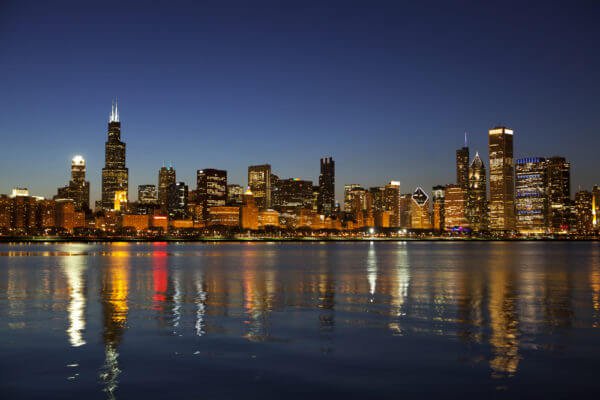When you hear someone mention the “Windy City,” you immediately know they’re talking about Chicago, as surely as the “Big Apple” means New York and “Sin City” refers to Las Vegas. Knowing this, you might make sure to pack your best windbreaker for your first trip to Illinois’ biggest city. But it turns out that, while Chicago is as prone to a blustery day as any other metropolis, its wind isn’t particularly exceptional. How did the city get this nickname?
Well, when the nickname came to be, the “Windy City” wasn’t describing the weather but the people. (Don’t worry, not that kind of wind.) Nineteenth-century journalists first gave Chicago this designation when criticizing the city’s elite as “full of hot air.” In the Chicago Daily Tribune, a reporter wrote in 1858 that “[a] hundred militia officers, from corporal to commander … air their vanity … in this windy city.” Another reporter, a proud citizen of Milwaukee, boasted that his own city was the better of the two: “We are proud of Milwaukee because she is not overrun with a lazy police force as is Chicago—because her morals are better … than Chicago, the windy city of the West.” They meant that the city was full of “windbags,” people with inflated egos who cared about nothing but profit.
As Chicago continued to grow into a major metropolis, rivalries between itself and other cities grew in kind. In 1893, despite New York journalists’ assertions that the people of “that windy city … could not hold a world’s fair even if they won it,” Chicago beat out the Big Apple to host the World’s Fair. More and more journalists—from Cincinnati in particular—began using the “Windy City” jab, and it stuck. To us, it seems like other cities were just jealous.
And maybe they had reason to be. Despite the unflattering nickname, it certainly seems like Chicago got the last laugh: it was recently named the best city in America. So don’t let wind, literal or otherwise, stop you from taking a trip there.












